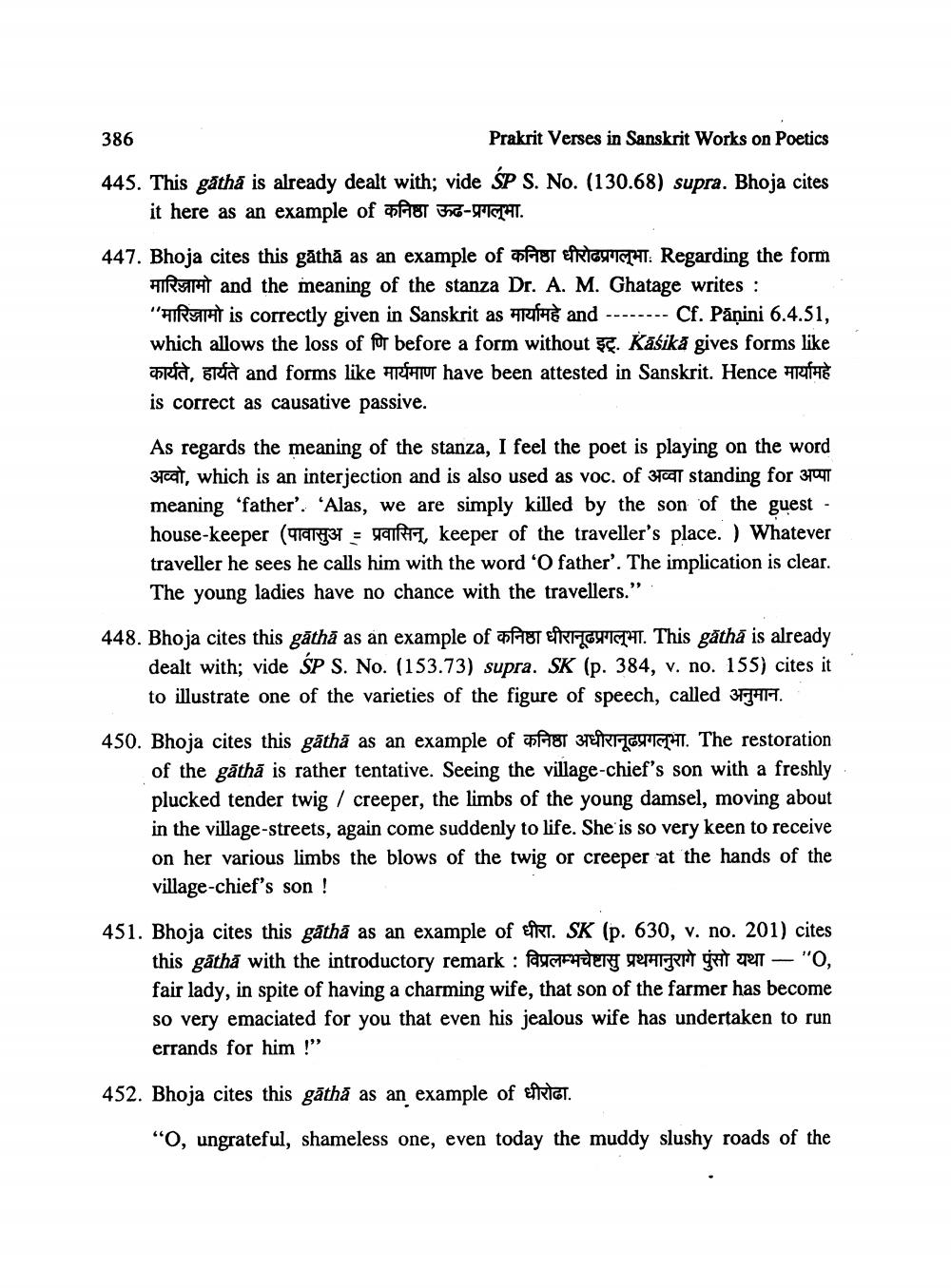________________
386
Prakrit Verses in Sanskrit Works on Poetics
445. This gātha is already dealt with; vide ŚP S. No. (130.68) supra. Bhoja cites
it here as an example of aflet 55-MITAT.
447. Bhoja cites this gāthā as an example of afA8T ERIGAITHT: Regarding the form
HIRSIM and the meaning of the stanza Dr. A. M. Ghatage writes : "HIRM is correctly given in Sanskrit as Hruhe and ------- Cf. Pāṇini 6.4.51, which allows the loss of for before a form without gĘ. Kāśikā gives forms like कार्यते, हार्यते and forms like मार्यमाण have been attested in Sanskrit. Hence मार्यामहे is correct as causative passive.
As regards the meaning of the stanza, I feel the poet is playing on the word 37cat, which is an interjection and is also used as voc. of 37cal standing for 379 meaning 'father'. 'Alas, we are simply killed by the son of the guesthouse-keeper (497937 = yqit, keeper of the traveller's place. ) Whatever traveller he sees he calls him with the word 'O father'. The implication is clear. The young ladies have no chance with the travellers.”
448. Bhoja cites this gāthā as an example of abf8T ERFGH'ITH. This gātha is already
dealt with; vide ŚP S. No. (153.73) supra. SK (p. 384, v. no. 155) cites it to illustrate one of the varieties of the figure of speech, called 30H.
450. Bhoja cites this gātha as an example of 18 3TERTIGATITETT. The restoration
of the găthā is rather tentative. Seeing the village-chief's son with a freshly plucked tender twig / creeper, the limbs of the young damsel, moving about in the village-streets, again come suddenly to life. She is so very keen to receive on her various limbs the blows of the twig or creeper at the hands of the village-chief's son !
451. Bhoja cites this gāthā as an example of IRT. SK (p. 630, v. no. 201) cites
this gātha with the introductory remark : PadFHTERA HIRIT at T - "O, fair lady, in spite of having a charming wife, that son of the farmer has become so very emaciated for you that even his jealous wife has undertaken to run errands for him !"
452. Bhoja cites this gātha as an example of tirian.
"O, ungrateful, shameless one, even today the muddy slushy roads of the




